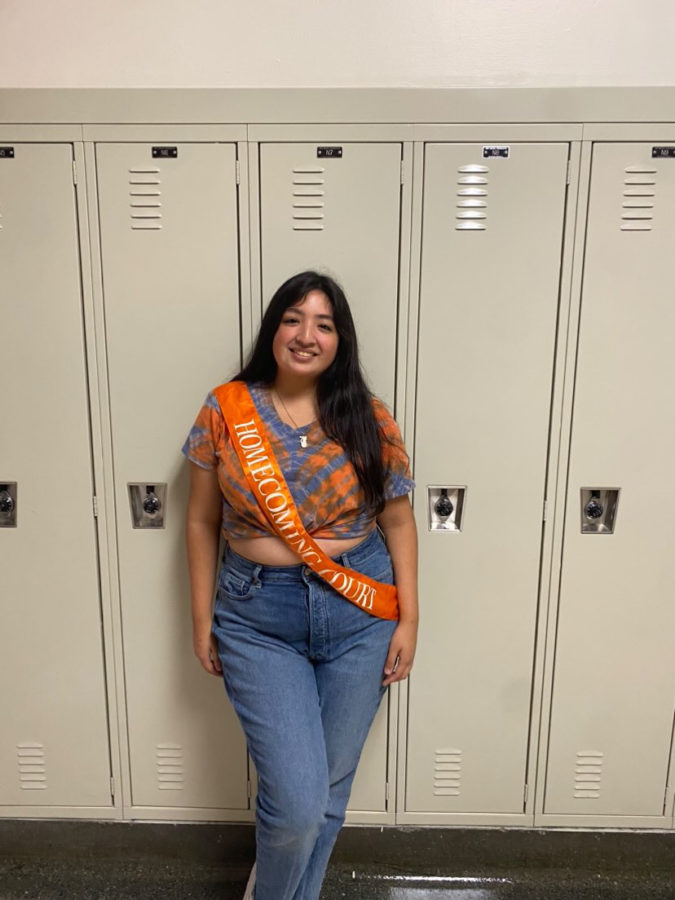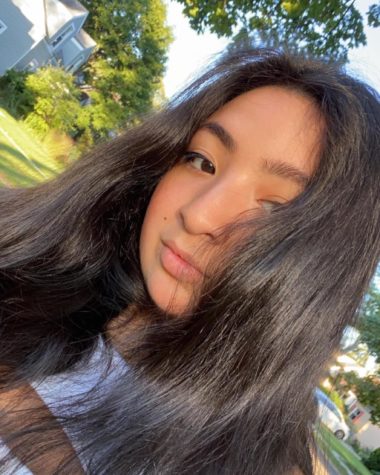Opinion | Unfair norms and Homecoming Court
October 14, 2022
When Homecoming nominations were open, I asked people to nominate me as a joke. But in reality, I wanted to get selected. Because of how society talks about events like Homecoming, I was embarrassed to admit that getting nominated would mean a lot to me. The media makes people who don’t fit in with the popular crowd feel like they can’t participate in running for events like Homecoming royalty. I know that because of these specific standards, people who were interested in running didn’t even try.
So, of course, I was shocked when I got the email that I was nominated for Homecoming court. I couldn’t believe that it was happening. I was that one goofy kid for years who was picked on and looked over constantly, so seeing that email was such a shock.
At first, I considered dropping out, because I knew people would see me as a joke. But I didn’t. I used the opportunity to speak up for those in my position. Especially being a nerdy person of color, I could speak for many of those people, and that was my goal.
I started campaigning the day I found out. I posted on my social media about my campaign; some people listened, and some completely ignored it. Once more people found out that I was running, I was laughed at and asked to drop out. Someone even satirically asked me if I thought I would win. I told them yes.
The whole time I campaigned, I thought that the worst thing I’d endure would be teasing from my classmates. But that was until the Homecoming court got announced. My last name, “Escalera”, was misspelled. It was written down as ‘Escalena.’ I immediately emailed the staff who made the announcements. I told them I knew it was a common mistake and asked for it to be changed. I got a reply later saying that my name would be changed on the ballot but not on the announcement.
I looked closely to see if everyone else’s name on the ballot was spelled correctly—they were. I immediately expressed my anger, especially being the only queer person of color on the ballot. Some agreed, and some told me I was overreacting. But, important to note, everyone who told me I was overreacting was white.
I looked at the girl below my name, who had a pretty complicated name that even I would misspell, plus her nickname in the middle. Her name? Spelled correctly. Yet Escalera was misspelled, and it isn’t that hard. I was angry that my name wouldn’t be changed, because it’s just one letter to fix.
I was seen as a joke, and that made it even worse. Especially the people who didn’t know who I was. They would think I am Miranda Escalena instead of Escalera. My friends who caught the typo were on my side. People who weren’t fond of me just laughed and saw it as a perfect opportunity to use that against me to annoy me.
On the morning of the Homecoming game and pep rally, I was asked if my name was Escalera or Escalena. I told them Escalera and at the pep rally, they said it correctly, but when it came down to the game and Homecoming court was being announced, the worst had happened. When my name was being announced they paused at ‘Esca,’ then continued to say, ‘leena.’ It’s like they gave the anticipation of getting my name wrong, and they did, and it wasn’t right. I didn’t even get an apology.
Since as far back as 1910 at ETHS, Homecoming royalty has almost been essential to the stereotypical high school experience. It’s one of the most significant events in high school for some people. But people already know this event is just a big popularity contest.
If you look as far back as the 1965 ETHS Homecoming, all the females running for Homecoming queen were skinny white women. There was no telling when the first person of color won Homecoming royalty, but it was most likely closer to today than 1965. But still, then, the pattern was most of them were popular in school.
Moving forward to the most recent years at ETHS, this event has expanded significantly. LGBTQ people have won these events, and that’s changing the narrative, but the people who are different, whether it’s their skin tone, personality or interests, are still stuck in that norm that they can’t run for stuff like Homecoming royalty. As soon as you are seen as not popular or anti-social, you get looked over. It is entirely unfair.
I have talked to multiple people about this. I run Anime Club, and many of the members expressed that they wanted to run it but were afraid they wouldn’t be able to because of how society portrays us. The Anime club is filled with amazing people.
I hope people come to realize that everyone belongs and everyone is different. It doesn’t matter if we are popular or not social. Our differences are what make us unique. Anyone can participate in activities like this, and no one should make you feel any less.
If you want to do something, do it. You may never know the outcome, but it could be the one you hoped would happen.











